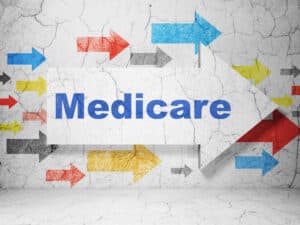 People enrolled in Medicaid may have to take action to remain covered and there are steps they can take if they lose Medicaid.
People enrolled in Medicaid may have to take action to remain covered and there are steps they can take if they lose Medicaid.
As previously shared (on 3/22 and 5/15) on the Administration for Community Living (ACL) blog, at the beginning of the COVID-19 pandemic, significant changes were made to Medicaid enrollment and eligibility rules to prevent people from losing Medicaid coverage during the pandemic. With the end of the federal Public Health Emergency on May 11, 2023, those flexibilities have ended, and all states are resuming their regular processes for renewing individuals’ Medicaid coverage.
Based on data from 28 states and the District of Columbia, Kaiser Family Foundation reports that more than 1.6 million people have been disenrolled from Medicaid as of July 5, 2023. Many of these people may still be eligible for Medicaid but lost coverage because they didn’t return forms (or either they or the state made other mistakes).
 It is crucial to make sure everyone covered by Medicaid knows:
It is crucial to make sure everyone covered by Medicaid knows:
- Over the next 12 months, everyone with health care coverage through Medicaid or the Children’s Health Insurance Program (CHIP) will need to renew their coverage.
- What they need to do to avoid losing coverage if they are still eligible.
- Other options for coverage if they are no longer eligible for Medicaid or CHIP (such as the Affordable Care Act (ACA) Marketplace or employer-sponsored coverage), and how to find help navigating them.
Every Medicaid beneficiary needs to receive these important messages:
- UPDATE your contact information with your state Medicaid agency NOW.
- RESPOND to the Medicaid renewal form when it comes in the mail. If you don’t, you may lose your coverage even if you are still eligible.
- PARENTS should respond even if you are not eligible or are enrolled in other coverage. Your children could still be eligible for coverage.
- CONNECT WITH RESOURCES THAT CAN HELP: If you lose Medicaid coverage and think you may still be eligible, there are programs that may be able to help you appeal the denial of Medicaid coverage or find other insurance. State protection and advocacy systems and legal advocacy organizations funded under the Older Americans Act may be able to help with appeals. Disabled people of all ages can also contact the Disability Information and Access Line (DIAL) for assistance, and older adults can contact the Eldercare Locator to find local assistance.
- CHECK OTHER OPTIONS: If you are no longer eligible for Medicaid, you should check to see if you can get coverage through your employer or through the Affordable Care Act Marketplace at healthcare.gov. Older adults and people with disabilities who are eligible for Medicare can also find assistance through their State Health Insurance Assistance Program (SHIP). SHIP is a national program that offers one-on-one assistance, counseling, and education to Medicare beneficiaries of all ages, their families, and caregivers to help them make informed decisions about their care and benefits.
Many people don’t realize they have Medicaid coverage if it goes by another name in their state, and they may not realize that they need to look for renewal information. Find links to your state Medicaid agency.
Finally, in a recent letter to U.S. governors, Health and Human Services Secretary Xavier Becerra urged states to adopt all options HHS has offered to help eligible individuals and families maintain their health coverage during unwinding. Your advocacy can play an important role in implementing these options.
Making sure people stay covered will take an “all hands on deck” effort, but together, we can make sure every American has access to quality, affordable health coverage.
For additional information and the latest resources, visit the “Unwinding” page on ACL.gov.

